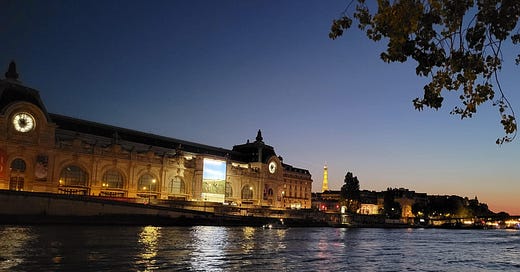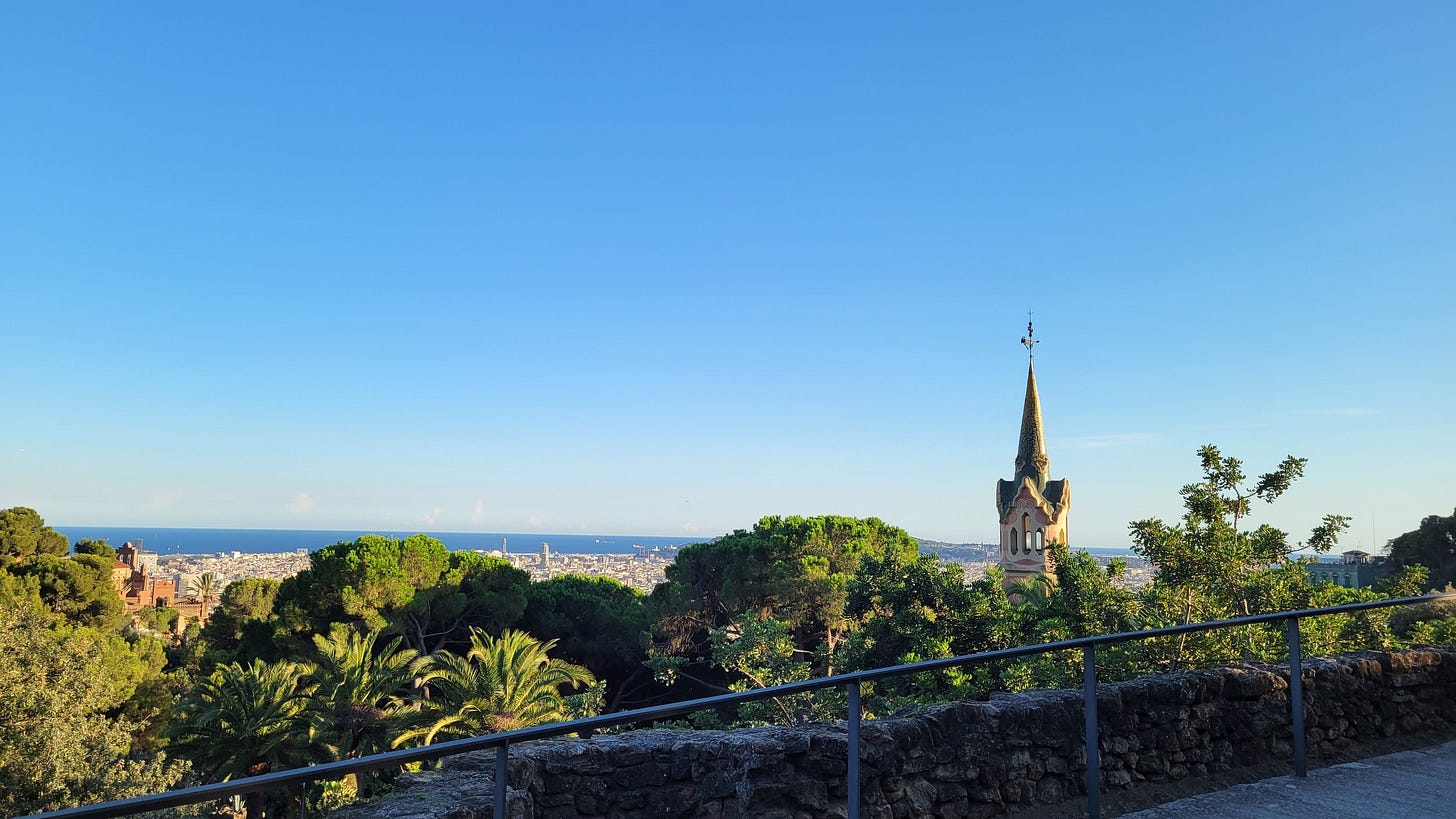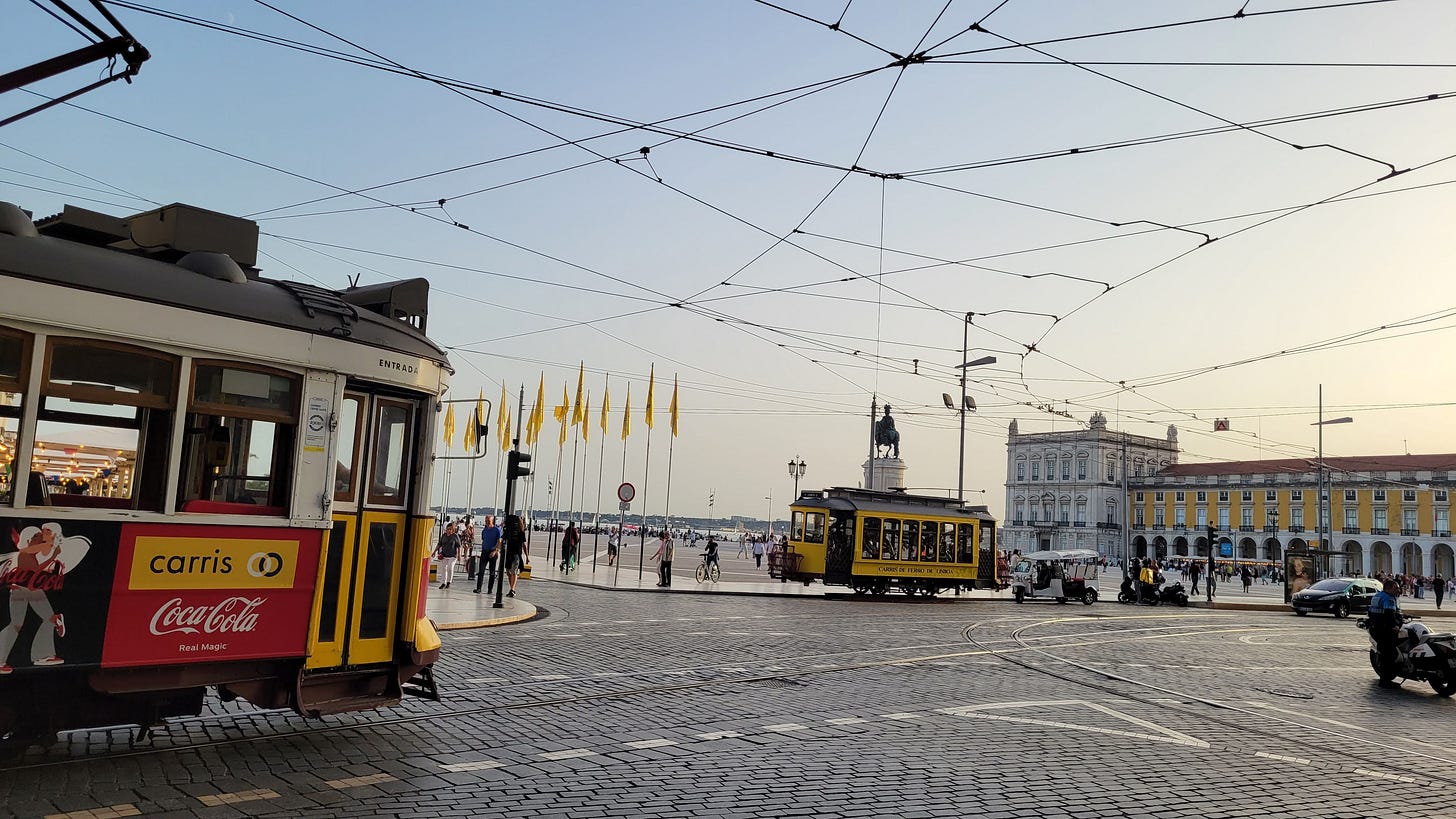I was traveling the first time I fully shaved my head. I had just reached Paris for a conference. It was a historically hot summer, like 38 Celsius1. The air conditioning on the transit from CDG was broken. I was covered in sweat by the time I checked into my airbnb.
I’d already been traveling for a bit before I reached Paris, so it had been a while since I had properly gotten a haircut. I had a conference event to get to right after I reached, so I didn’t have time to look for a barber (while also, navigating a new language and city). But I did have a razor. And time to shower. So I shaved my head in an attempt to present myself as half-decent.
I was intending to try out shaving my head for a few weeks then. My hair was really short (but not quite completely shaved) for a while. But there was always something that kept me from shaving that last half centimeter. The last centimeter of hair obfuscates your scalp, and any imperfections on it. Would I have any pimples or scars? How does my scalp/head shape look like? Being bald is vulnerable. And I didn’t have the emotional energy or reason to take the plunge until I was in “travel” mode.
Traveling has always been a way for me to explore invariants. In engineering, one method to explore a complicated system is to try to find things which never change through all of the states a system can occupy. If you can wildly vary your system but still manage to find things which remain constant, you have managed to describe something complicated in simple terms.
I take a similar approach to traveling. What about me doesn’t change despite the culture I’m immersed in? Throughout timezones, languages, cuisines, currencies, cultural expectations? Can I discover any universal properties about being a human, an adult, about me? Are there some platonic ideals of these things?
When I lived in Spain, I befriended a man named Manaru2. He had a bushy but well-groomed beard. Despite being in his 40’s, he had the body and the sense of humor of a college frat boy. His diet consisted only of cigarettes and wine. He was the living embodiment of the guy from that dos equis ad. He spoke as much English as I did Spanish. Despite our language barriers, we still were able to genuinely connect with each other (over some glass(es) of wine). Similar to shaving my head, connecting with Manaru was an exercise in exploring the invariants of masculinity. What could we find in common despite being from different generations, being raised in different countries, and speaking different languages?
What stood out to me about Manaru was that he was unafraid of talking about his emotions. And that’s not specific to him. Being comfortable expressing emotions seems like a core value of Spanish culture. In the U.S., expressing emotions is a lot more common for women than men. I’ve always thought that, despite men often wanting to express emotions, they often don’t how to. But if a whole country of people can, it seems like that’s a solved problem.
Another exploration of masculinity while traveling was through dance. When I lived in Lisbon, I briefly got back into salsa. Since I was in the “uncomfort” mode of traveling, I got in the habit of asking people to dance. Shooting your shot is another vulnerable thing to do. To approach someone is to express a desire which may or may not be reciprocated. To open yourself up to failure and rejection while putting yourself out there takes some courage. Asking people to dance is yet another example where masculinity can be vulnerable3.
Traveling expanded my definition of masculinity. All three of these examples seem to point to vulnerability being an important property of masculinity. This makes my previously held “platonic” ideal of the U.S. seem incomplete. When we complain about men not being vulnerable enough - maybe the solution is to embrace a new ideal.
I don’t mean to redefine masculinity in a way to gatekeep or shame anyone for not being “manly” enough. Obviously, not shaving your head or shooting your shot doesn’t exclude you from being a man. Moreover, I don’t mean to imply that men should strive to be “manly”or fit into some type of mould - gender exists in spectrums, and It’s probably good that the vast majority of people don’t identify with a particular extreme.
I do want to communicate, however that being “masculine” isn’t valid justification for not being vulnerable. Just because you bench 2 plates doesn’t mean you also can’t talk about your emotions in a conversation. If “Let me love you” can be a top classic that people still listen to without anyone calling Mario’s masculinity into question - then surely Brad can talk about how maybe he’s sad today. There might be other valid reasons to not be vulnerable - it takes energy, it needs to be done in the right time and space. But being masculine is just not one of them.
I owe my ability to be vulnerable to a select few set of women who I’ve become close to over years. The ones who taught me it’s ok to be in tune with my emotions. The one who showed me, through repeatedly giving me space and encouragement that it’s ok to talk about what’s on my mind. If you’re a man reading this - I hope you find a group of people who can empower you to grow into all sides of yourself. The ones who encourage you to be loved.
The ones who encourage you to be bald.
You’re toxic if you have to convert this to Fahrenheit
Name may or may not have changed to respect any potential wishes of anonymity. Also I’m really bad at names.
I don’t mean to imply that only men ask people to dance - obviously everyone asks everyone to dance. In modern salsa, the gender lines are blurred, as are the role of “leader” and “follower”. But it’s like, not not masculine to ask someone to dance.






